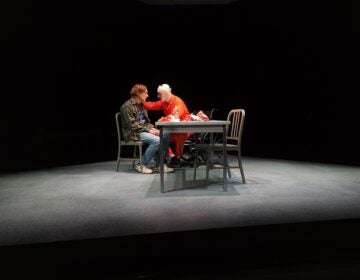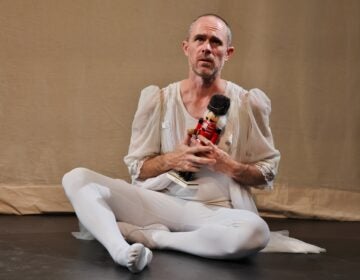A new musical about a Jenkintown Holocaust survivor is premiering at Gratz College in Elkins Park
Ruth Kapp Hartz evaded Nazis as a young Jewish girl in France during WWII. Now, she is watching her story onstage through the musical “Hidden.”
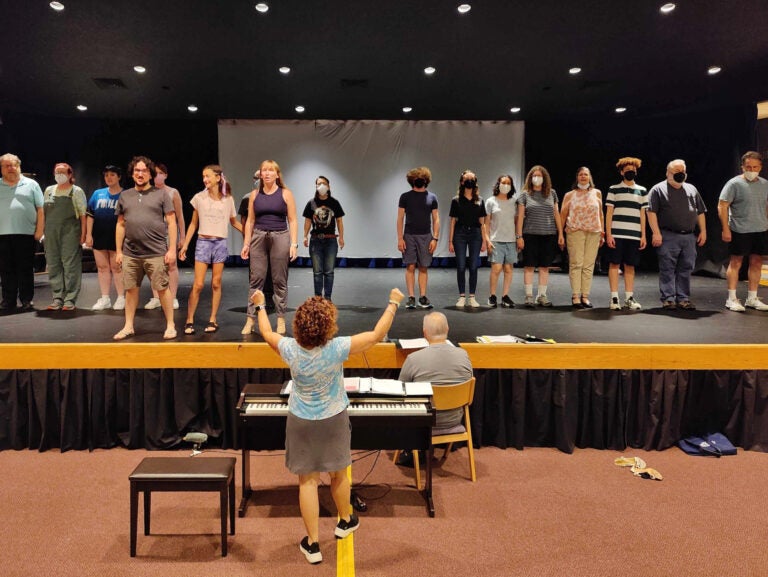
Music director Alyssa Davidson takes the cast of ''Hidden'' through a rehearsal at Gratz College in Elkins Park. (Peter Criimmins/WHYY)
From Philly and the Pa. suburbs to South Jersey and Delaware, what would you like WHYY News to cover? Let us know!
This reporting is funded by HFGF.
Ruth Kapp Hartz was four years old, living with her German Jewish parents in Toulouse in the “free zone” of France below the Nazi-occupied portion to the north. When the Nazi-aligned Vichy police started searching door-to-door for Jewish, non-French residents, Ruth became Renée.
“Old Testament names in France are not that common in France. In fact, weren’t even allowed up until 1980,” she said. “Old Testament names immediately meant that you were Jewish.”
For the next three years, Hartz and her family adopted false identities and went into hiding. They frantically tried to stay one step ahead of dogged Nazi and Vichy authorities as they crisscrossed France.
“That’s the right path! Oh, no, this is! Life depends on narrow misses,” sings a chorus of about two dozen in the new musical, “Hidden,” premiering this weekend at Gratz College in Elkins Park.
Hartz is now a retired French teacher living in Jenkintown. In 1999, she told her story of survival in the memoir “Your Name is Renée,” co-written with Stacy Cretzmeyer.
The book landed on the desk of composers Jenny and David Heitler-Klevans through family connections.
“I read the book and I suddenly I was picturing things as a musical,” Jenny said. “The first thing we had to do was reach out to Ruth and find out if she would be okay with this, which she very generously was. She said, ‘I think you should come to France and meet the people who rescued my family.’”
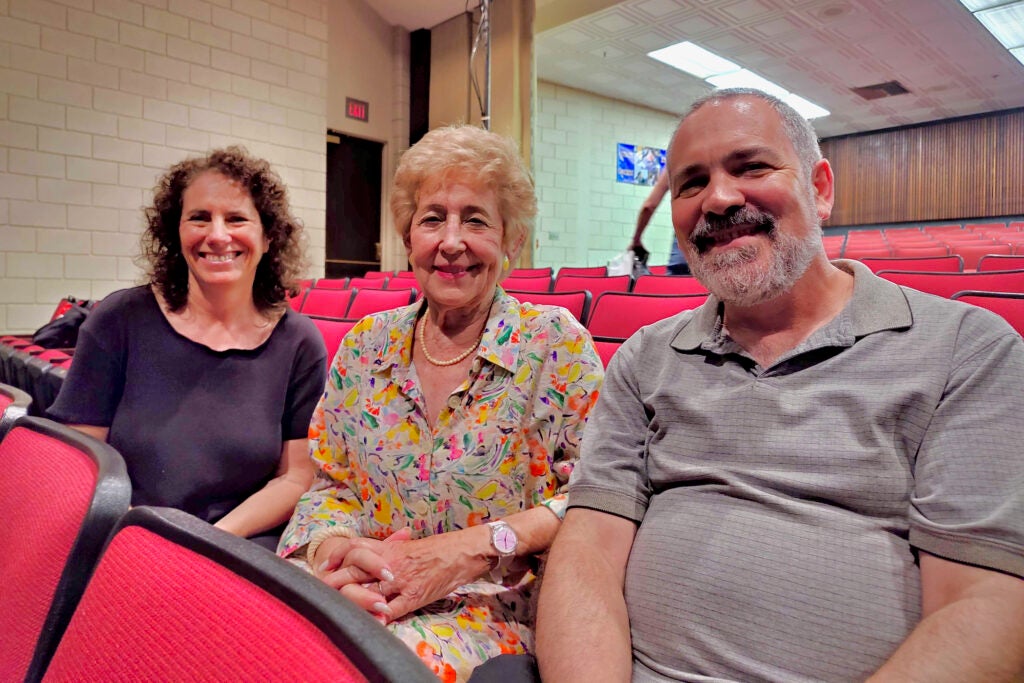
In 2019, the Heitler-Klevans’ joined Hartz on a trip to the Catholic convent where the Mother Superior took in Jewish children and identified them as Catholic orphans when authorities asked.
Hartz was left at the convent by her mother out of desperation, believing her chances of survival were better there than on the run. Hartz recalled some of the nuns telling her that her parents were dead.
Only later did she understand the nuns were protecting her from suspicion.
“The reason they had to tell us that our parents were dead was because Sunday was visiting day, and lot of mothers came to visit their children,” she said. “We didn’t understand — we Jewish children — why isn’t my mother visiting?”
The composers also followed Hartz to the village of Arthès and met a 94-year-old woman with great-great-grandchildren who, as a teenager, helped shield her from authorities during WWII.
“They were some of the nicest people we’ve ever met,” Jenny said. “And we’ve met a lot of people.”
“We decided that we didn’t want to base the musical on the book. We really refocused on first-person interviews with Ruth and other people,” said David. “It freed us up from being too strict in our adherence to what’s on the page.”
With access to primary sources, the songwriting team had found their story — not just a Jewish girl who evaded capture, but the surrounding cast of characters who made Ruth’s evasion possible.
“This story is not Anne Frank. It’s not death camps. It’s really a story of hope, allies and rescuers,” said David. “We don’t see this as a depressing story. Ruth and her parents survived because of rescuers who risk their lives to save them.”
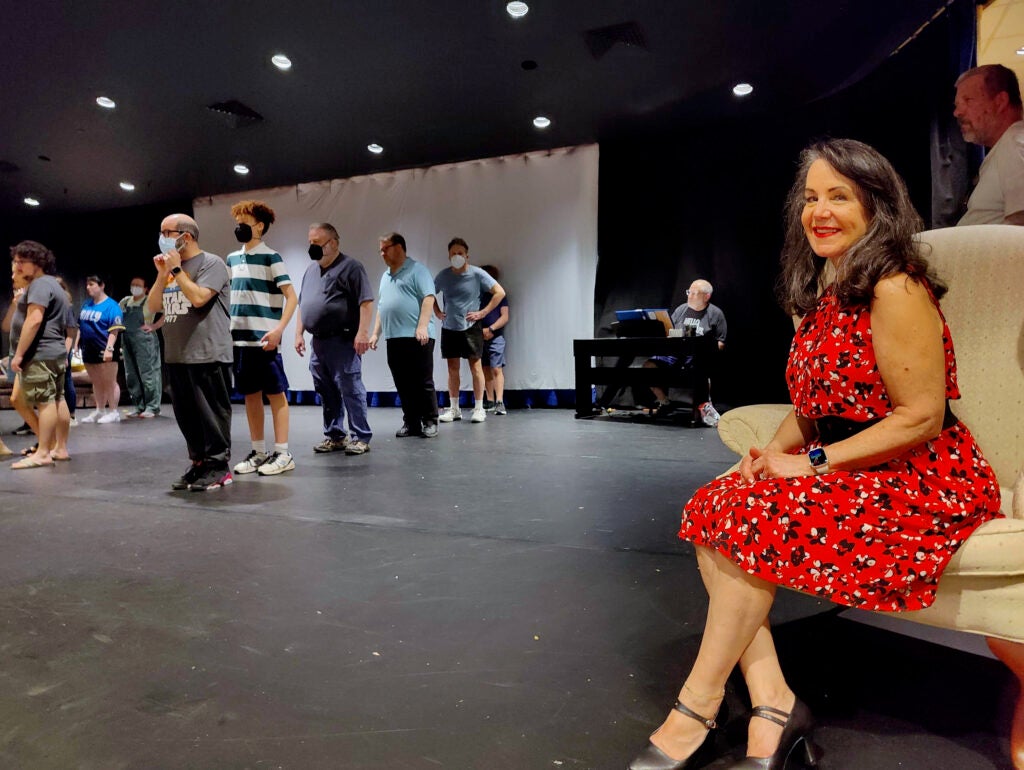
Hartz is played by Linda Glazerman Roeder, who portrays Hartz as an adult driven to recount her story of survival after seeing a rise in antisemitism, in particular, the 2017 Charlottesville Unite the Right rally where marchers chanted, “The Jews will not replace us,” and the 2018 shooting at the Tree of Life synagogue in Pittsburgh that left 11 people dead.
“She realizes at that moment that it’s enough. We can’t have that happening anymore,” Glazerman Roeder said. “It’s what she experienced in her childhood, and now it’s happening again.”
The contemporary framing device brings the war story up to the current moment. Hartz said the composers were able to go beyond her own memoir.
“There’s a lot more than what’s in the book, including feelings,” she said. “It’s written in the voice of the child that I was then. Jenny and David were able to get my feelings now.”
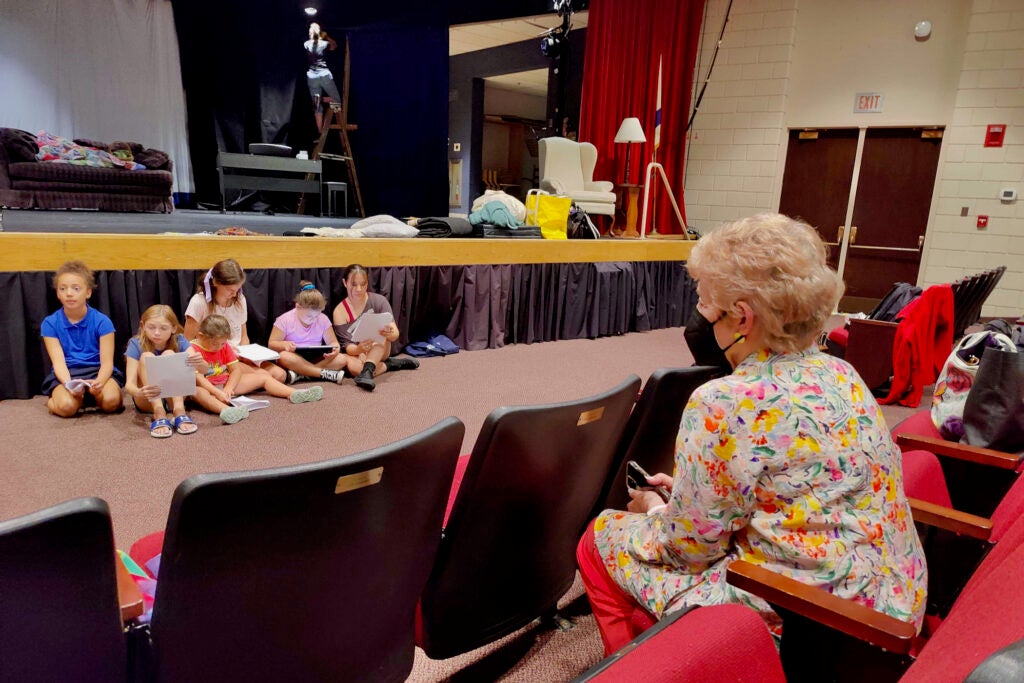
Some of those feelings inspired one of the musical’s most poignant songs. As an adult, the character Hartz, played by Glazerman Roeder, reflects on the selfless bravery of those who helped her survive. She reflects on where she, herself, would have done the same.
“There’s a song that Ruth sings based on something she actually told Jenny and David about not knowing whether she would have been brave enough to rescue people and put herself and her family in danger the way they did,” Glazerman Roeder said. “It’s called ‘It Haunts Me to This Day.’”
“Hidden” premieres at the Gratz College Theater on Friday, Sept. 6, and runs through Sept. 22.

Get daily updates from WHYY News!
WHYY is your source for fact-based, in-depth journalism and information. As a nonprofit organization, we rely on financial support from readers like you. Please give today.




